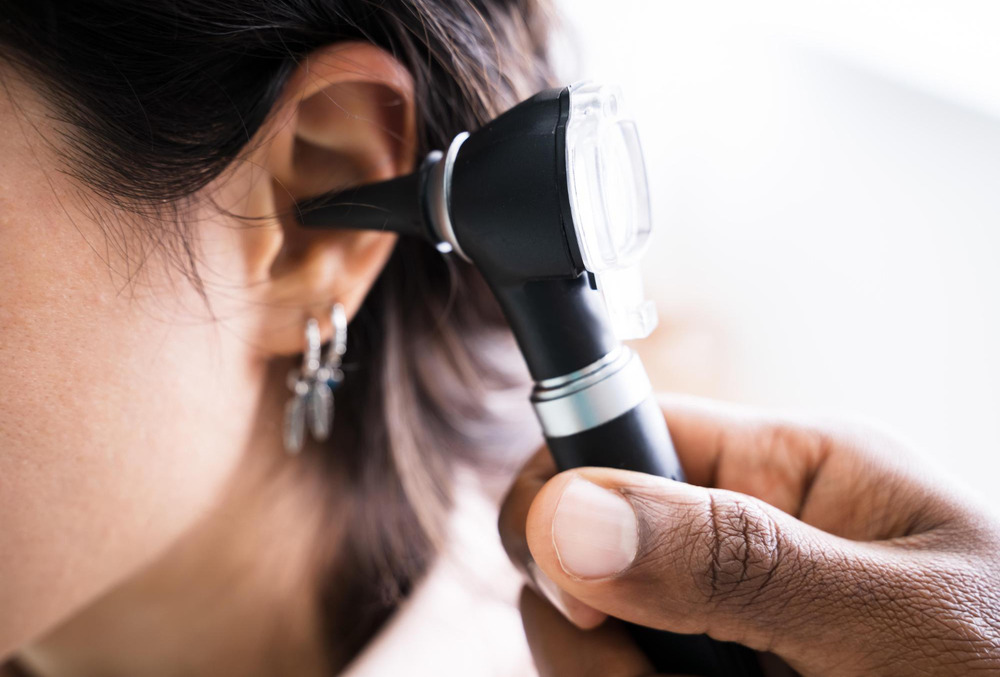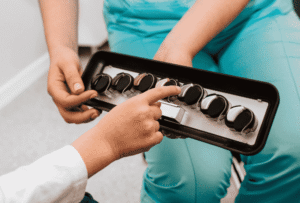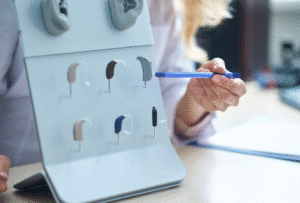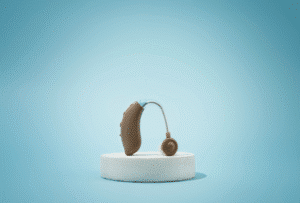Have you or someone you know started asking people to repeat themselves more often or turning up the TV volume? These could be signs that it’s time to get a hearing test. Hearing tests are a simple and proactive step toward understanding your hearing health, and knowing how to prepare for one can make the process smooth and stress-free. A little preparation goes a long way in ensuring the results are as accurate as possible, giving your audiologist the best information to guide you on your journey to better hearing. Let’s explore how you can prepare for your auditory screening test to get the most out of your visit.
Types of Hearing Tests
A comprehensive hearing evaluation typically involves a series of tests to provide a complete picture of your auditory health. Here are some of the most common types of tests your audiologist may perform:
- Pure-Tone Testing (Air Conduction): This test measures your overall level of hearing by presenting pure-tone sounds at different pitches and volumes. You’ll be asked to respond when you hear the sound, helping to determine the softest level you can hear at various frequencies.
- Pure-Tone Testing (Bone Conduction): Bone conduction testing tests the function of the inner ear using a small vibrator placed behind your ear to bypass the outer and middle ear. It stimulates the inner ear directly, helping your audiologist determine if your hearing loss is due to a problem in the inner ear or in the outer/middle ear.
- Speech Testing: This test evaluates your ability to hear and understand spoken words. It often involves repeating words at different volumes to assess both your speech reception threshold (the softest level you can hear speech) and your speech recognition in quiet and noisy environments.
- Tympanometry: This test measures the function of your middle ear and the mobility of your eardrum. A small probe is placed in your ear canal to change the air pressure, which helps the audiologist identify issues like middle ear fluid, Eustachian tube dysfunction, or a perforated eardrum.
- Auditory Brainstem Response (ABR): This is an objective test that measures how the auditory nerve and brainstem respond to sound. Small electrodes are placed on your head to record brainwave activity in response to clicking sounds, providing a detailed look at the auditory pathways. This is often used for infants or those who can’t provide behavioral responses.
How Do You Prepare for a Hearing Test?
Clean Your Ears
Before your check-up appointment, it’s a good idea to gently clean your ears, but it’s crucial to do it correctly. You can clean the outer part of your ear with a soft washcloth and a mild soap, then be sure to dry it thoroughly. This simple step helps ensure there’s no visible debris that might interfere with the initial visual examination of your ear canal. Regular ear cleaning can help prevent ear infections, making it a crucial and good habit to adopt. It’s also important to avoid inserting cotton swabs or other small objects into your ear canal, as this can push earwax deeper and cause blockages.
To learn more about protecting your ears, explore our 5 tips on how to take care of your hearing.
If you have a history of significant earwax buildup or blockages, it’s a good idea to speak with your doctor or hearing health center ahead of time. They can recommend safe methods for earwax removal, or they can perform a professional cleaning to make sure your ear canals are clear for the test. Having a clear pathway is essential for accurate test results.
Reschedule If You’re Sick
Your overall health can have a temporary impact on your hearing. If you’re experiencing a cold, the flu, or an ear infection, it’s best to reschedule your hearing test in the Philippines. Congestion or fluid buildup in your middle ear can cause temporary hearing loss or muffled hearing, which could lead to inaccurate test results. By waiting until you’re feeling better, you’ll ensure that the test provides a true and reliable snapshot of your baseline hearing health.
Prepare Your Medical Information
To get the most out of your appointment, come prepared with relevant medical information. Create a list of any medications you’re currently taking, including both prescription and over-the-counter drugs, as some medications can have an impact on hearing.
It’s also helpful to note any past medical conditions, surgeries, or a family history of hearing loss. Providing this background information helps your audiologist understand your unique health profile and how it might relate to your hearing.
Clarify Insurance Concerns

Before your appointment, it’s a good idea to contact your insurance provider to clarify what your plan covers. Many insurance companies, particularly in the Philippines, offer some form of coverage for diagnostic tests, and some may even provide a benefit for hearing aids. By understanding your benefits beforehand, you can have a more informed discussion with your audiologist about potential costs and financial options, helping to reduce any stress or uncertainty related to your visit.
Prepare Your Questions
A hearing exam is a great opportunity to get answers to any questions you may have about your hearing. Think about what you’d like to know ahead of time and write it down so you don’t forget.
Some questions to prepare include:
- What’s the specific nature of my hearing loss?
- What can I do to prevent further hearing loss?
- What are the best hearing solutions for my lifestyle?
- How will a hearing aid benefit my specific needs?
- Are there different types of hearing aids I should consider?
- What is the process for hearing aid fitting?
- Are there preventative measures I can take to protect my hearing in the future?
- Is there anything in my lifestyle that could be affecting my hearing, like music, work, or hobbies?
- How often should I get my hearing checked if I have no symptoms of hearing loss?
Ask Your Loved Ones to Accompany You
Bringing a family member or close friend to your appointment can be incredibly helpful. They can provide valuable insights into your hearing difficulties, such as when they’ve noticed you struggling to follow conversations or understand speech in noisy environments. They can also help you remember the information and recommendations given by the audiologist, especially when discussing complex topics like hearing aid features or treatment plans. Their support can make you feel more at ease throughout the process.
Taking the First Step: A Proactive Approach to Hearing Health
Taking a hearing test is a powerful first step toward taking control of your hearing health. By preparing for your appointment, from ensuring your ears are clean to having your medical information ready and a list of questions in hand, you’re setting yourself up for the most accurate results and a productive conversation with your audiologist. By being prepared, you’re not just taking a test; you’re taking a significant stride toward a future of clearer communication and a richer engagement with the world of sound.
Ready to take that next step? Active Hearing Center is currently offering a free hearing aid fitting/trial. Experience better hearing by taking home a personalised device, subject to terms and conditions.









